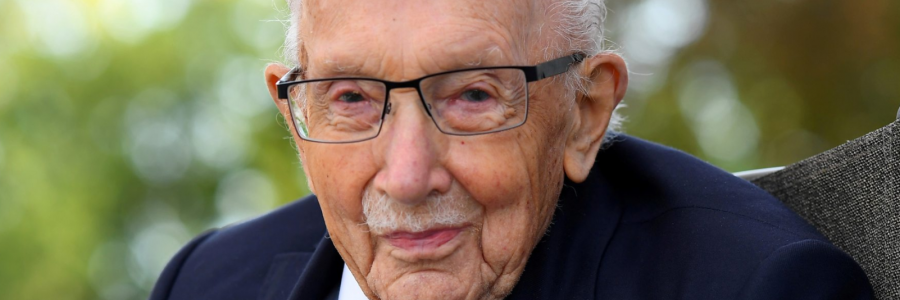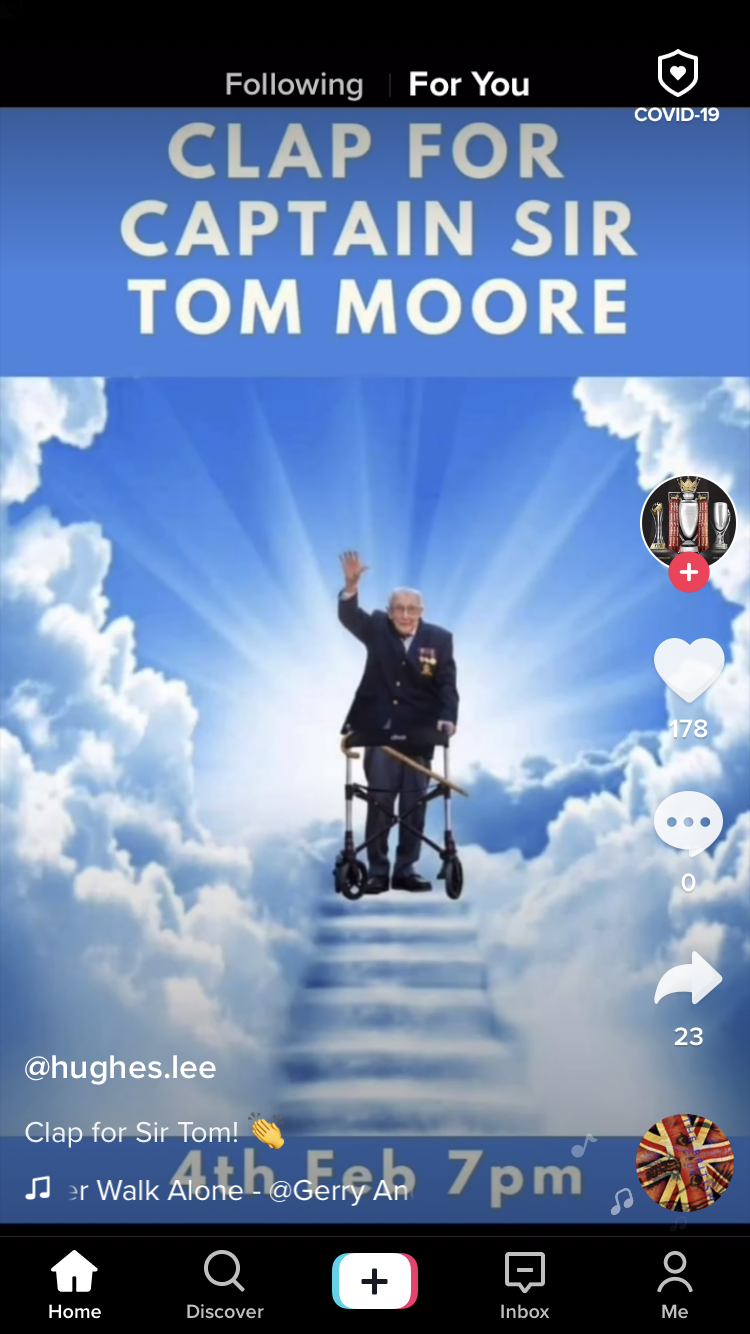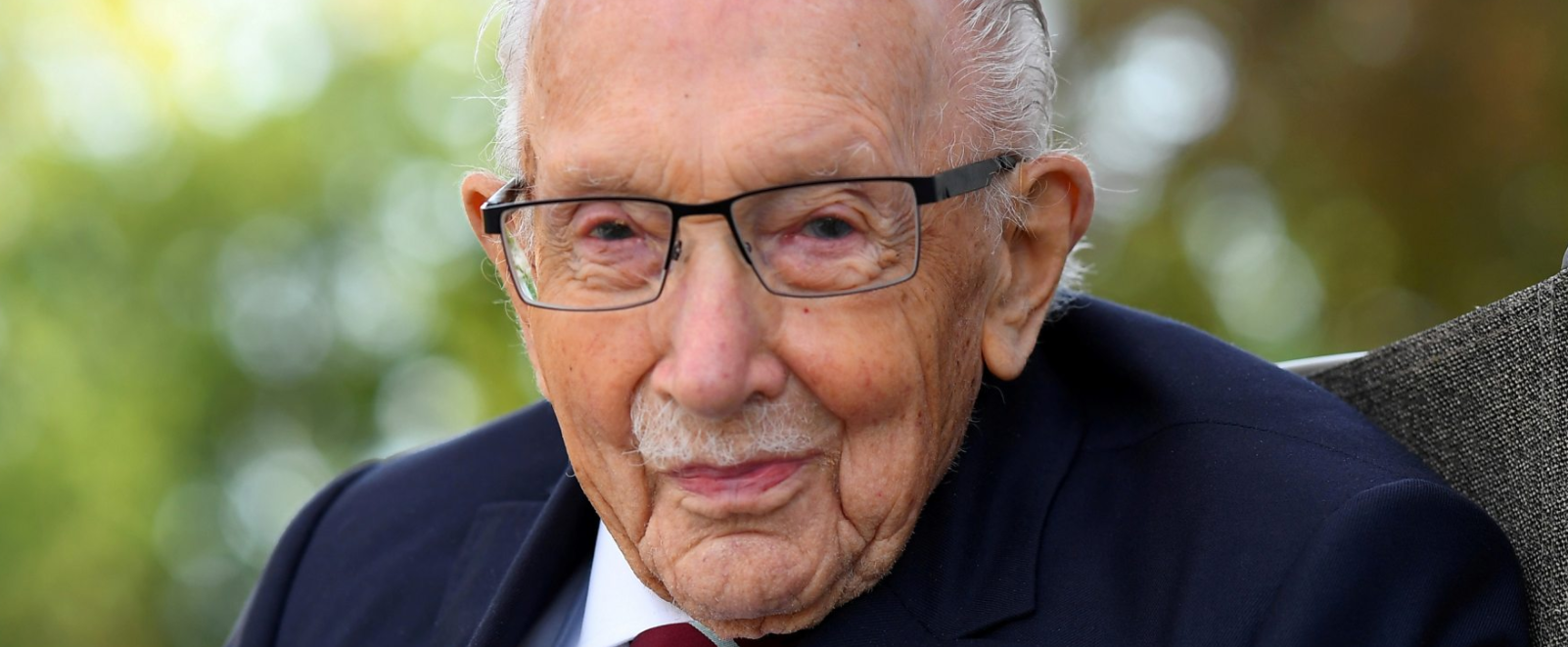
Army veteran who won the nation’s hearts died of coronavirus


Captain Sir Tom Moore, a hero who gave a nation hope, born in Keighley on 30th April 1920, In April 2020, died with coronavirus in Bedford Hospital on Tuesday.
Health Secretary Matt Hancock said he had “ Touched the hearts of the nation and we should remember that”.
Then 99-year-old war veteran accepted a family challenge to raise £1, 000 for the NHS charities by walking 100 lengths of his garden before his 100th birthday at the end of that month when he declared in his first TV interview “ One small soul like me won’t make much difference”. He could not have been more wrong as he raised more than £32m from more than one-and-a-half million global donors. He was knighted by the Queen, and RAF flypast to mark him turning 100 and a personal greeting from the Queen and prime minister. He became the oldest person ever to score a number one single in the UK when he and Michael Ball snag a cover of You’ll Never Walk Alone.
His father, Wilson, came from a family of builders, his mother Isabela, taught children at a local school, both middle-class backgrounds. His real passion was motorbikes, at the age of 12, Captain Sir Tom discovered one lying in the barn and bought it for half a crown and proudly took it home, and lovingly did it up. He left school to start an apprenticeship in civil engineering before World War Two broke out. Captain Sir Tom joined the Duke of Wellington’s regiment- an infantry battalion with historic links to the West Riding, and spent time in Cornwall, preparing to defend the coast from a German invasion, and learned how to drive tanks. Selected for officer training, he became a second lieutenant on his 21st birthday, and now part of the e146th Royal Armoured Corps found himself posted to India. With Suez Canal closed, the sea journey took six weeks under constant risk from German submarines. The train ride across India took nearly that long in the burning heat. The final destination was Burma, where the British Army and its Indian allies had been forced into a fighting retreat by a seemingly unstoppable Japanese advance. With his knowledge of motorbikes, Captain Sir Tom was asked to train dispatch riders. Radio transmissions could be intercepted, so this was the best means of getting information to and from the front line. Over the next few years, Captain Sir Tom’s team helped cut Japanese supply lines along with the Burmese coast. In 1945, Ramree Island battle more than 1,000 Japanese infantrymen were forced into a mangrove swamp infested by salt-water crocodiles only a handful emerged. After surviving a nasty bout of dengue fever he finally returned to England to train recruits in the art of driving tanks. He stayed in the army for another 15 years as an instructor at the Armoured Fighting Vehicle School in Dorset. In 1949, he married his first wife Billie . He left military service in 1960 and took a job a sales manager for a roofing company in his native Yorkshire. In 1967 sadly his marriage to Billie ended after 18 years they had no children. In the late 40s, he married Pamela and had two children – Lucy and Hannah. In 1992, he retired at the age of 72 as Pamela fell ill with dementia. Captain Sir Tom cared for his wife for two years and then visited her care home every day until her death in 2006.
Sir Tom was treated for skin cancer and a broken hip and received marvellous service from the NHS.
Captain Sir Tom was a much-needed symbol of defiance, national unity, and hope when the world locked down for the coronavirus pandemic.
He said, “ Please remember, tomorrow will be a good day” as Captain Sir Tom turned to complete his final lap the total stood at more than £12m and eventually surpassed £30m. On his birthday, Marston Moretaine, a local school volunteered to display 160, 000 birthday cards sent to a national treasure. The Queen knighted him at a special ceremony at Windsor Castle on 17 July 2020.
